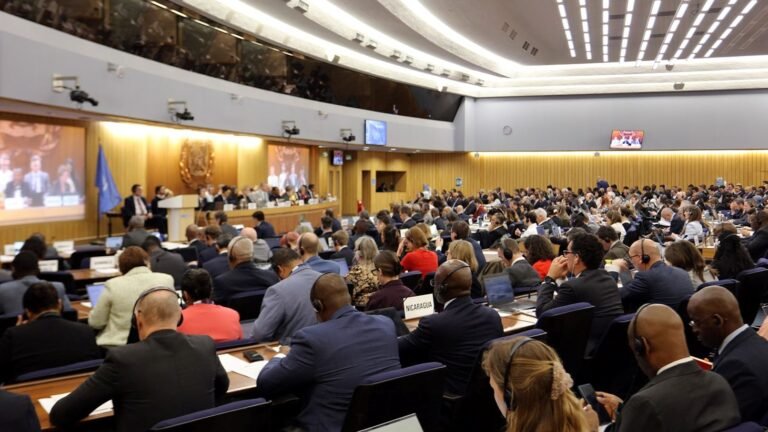IMO’s Net-Zero Framework: A Step Forward or a Missed Opportunity?
With the global climate regulation agreement adopted by the International Maritime Organization (IMO) at the 83rd session of the Marine Environment Protection Committee (MEPC 83), shipping is on track to become the first industry with internationally mandated targets to reduce emissions. While some industry representatives praise the agreement as “historic”, others describe it as a “shipwreck” that missed targets. However, a unified opinion is that more work is needed to steer the shipping industry toward a climate-neutral path.
During the session held from April 7 to April 11, MEPC 83 approved the IMO Net-Zero Framework, said to be the first in the world to combine mandatory emissions limits and greenhouse gas (GHG) pricing across an entire industry sector. Specifically, the approved measures include a new fuel standard for ships and a global pricing mechanism for emissions. These measures are set to be formally adopted in October 2025 and enter into force in 2027.
Once adopted, they will become mandatory for large ocean-going ships over 5,000 gross tonnage, which emit 85% of the total CO2 emissions from international shipping.
Regulations Overview
- Global Fuel Standard: Ships must reduce, over time, their annual greenhouse gas fuel intensity (GFI) – that is, how much GHG is emitted for each unit of energy used, which is calculated using a well-to-wake approach.
- Global Economic Measure: Ships emitting above GFI thresholds will have to acquire remedial units to balance their deficit emissions, while those using zero or near-zero GHG technologies will be eligible for financial rewards.
IMO elaborated that there will be two levels of compliance with GFI targets: a Base Target and a Direct Compliance Target at which ships would be eligible to earn “surplus units”. Ships that emit above the set thresholds can balance their emissions deficit by transferring surplus units from other ships; using surplus units they have already banked; or using remedial units acquired through contributions to the IMO Net-Zero Fund.
The revenues from the fund will then be disbursed to mitigate negative impacts on vulnerable states, reward low-emission ships, support innovation, research, infrastructure, and just transition initiatives in developing countries, and fund training, technology transfer, and capacity building to support the IMO GHG Strategy.
Industry Reactions
The adoption of the IMO Net-Zero Framework has sparked polarized opinions among shipping industry representatives and associations, with reactions still pouring in.
The World Shipping Council hailed the agreement as an “unprecedented global agreement” and a critical step toward shipping decarbonization. European Shipowners | ECSA and Danish Shipping also welcomed the agreement as a positive step, albeit noting the need for further ambition.
However, Pacific leaders and negotiators expressed deep disappointment in the outcome of the MEPC 83, abstaining from the final negotiations. They emphasized the need for stronger measures to protect vulnerable regions from climate change impacts.
The Clean Shipping Coalition criticized IMO member states for falling short of the UN body’s own climate targets, labeling the agreement as a “total shipwreck”. Other organizations, including Global Maritime Forum, highlighted the need for improved emission targets to incentivize investments in future fuels.
Conclusion
While the IMO’s Net-Zero Framework represents a significant step towards decarbonizing the shipping industry, it is clear that more ambitious measures may be necessary to achieve the industry’s long-term climate goals. The adoption of these regulations sets the stage for further discussions and actions to promote sustainable shipping practices and reduce emissions on a global scale.

